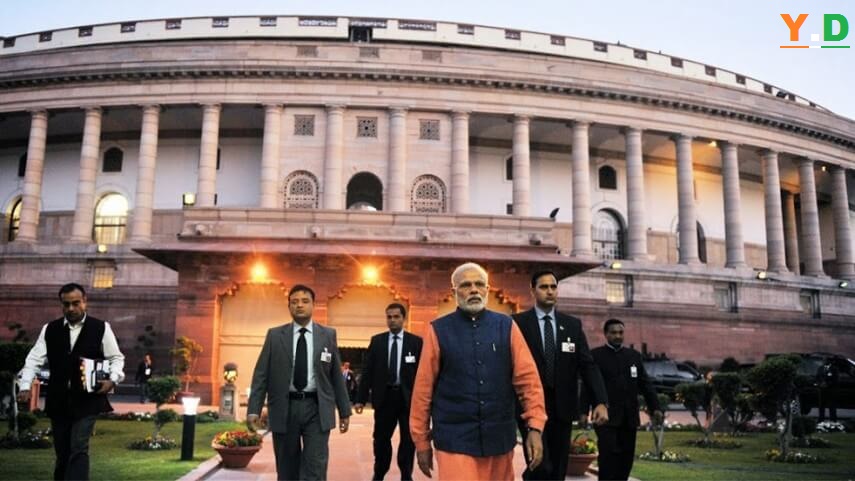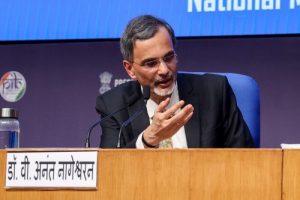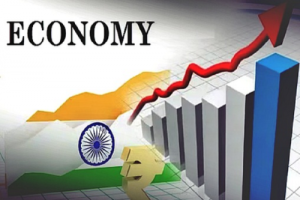DEMONETISATION
DIGITAL PAYMENT PROMOTION & LESS CASH ECONOMY
- Mera mobile mera bank mera batua: BHIM app (based on United Payments Interface(UPI)), to promote cashless economy brings payments to people’s phones
- 125 lakh people have adopted the BHIM app so far. Total transactions in BHIM App is nearly 50 lakhs & amount transacted is Rs. 1407 cr since 30th December, 2016
- BHP –AADHAR Platform launched by PM on 14th April ,2017 on Ambedkar Jayanti at Nagpur
- Cash incentives to promote digital payments – Lucky GrahakYojana and Digi DhanVyaparYojana
- Aadhar enabled Payment system in place to promote less cash economy
- Target of 2,500 crore digital transactions for 2017-18 through UPI, USSD, Aadhar Pay, IMPS and Rupay debit cards
- Provisions being made for sufficient number of PoS Terminals
-
- As on 19th March 2017, more than 11 Lakh Point of Sale (PoS) have been deployed against the target of 10 Lakh PoS deployment by banks before 31st March, 2017
- Payments Regulatory Board to be set up within RBI
- Digital Jagriti Program
- More than 2 Crore citizens trained on usage of electronic modes of payments since 2nd December, 2016
- Supported in on-boarding more than 16 lakh merchants
GST
- One Nation, One Tax- One Nation-One Market
- Passed by Parliament
- To be rolled on July 1,2017
- 4 Tax Rates- 5%, 12%, 18%, 28%
- Reduction in overall taxes on goods, estimated to be 25-30%
- Lead to ease of doing business and increase in tax revenue collections.
Benefits of GST
Decrease in Inflation due to
- Reduction in Cascading effect of Taxes
- Overall Reduction in Prices
Ease of Doing Business due to
- Common National Market
- Benefits to Small Taxpayers
Decrease in “Black” Transactions due to
- Self-Regulating on line Tax System
- Non-Intrusive and transparent Tax System
More informed consumer due to
- Simplified Tax Regime
- Reduction in Multiplicity of Taxes
Poorer States to gain due to
- GST being a destination based Tax
- Consumer States to benefit the most
- Abolition of CST
Make in India boost due to
- Exports to be Zero Rated
- Protection of Domestic Industry – IGST
ECONOMIC INDICATORS
- Inflation brought under control. CPI-based inflation declined to 3.65% in February 2017 from7.72% in May 2014.
- Inflation rate averaged 7.79 percent from 2012 until 2016, reaching an all-time high of 11.16 percent in November 2013 and a record low of 3.69 percent in July 2015
- Economic Survey: CPI based Inflation likely to be below 5%.
- Food inflation down to 2.46%; it was 8.88% in May 2014
- Economy has moved on a high growth path.
- India’s Current Account Deficit declined from 1.8% in 2014-15 to 1.3% in Q3 2016.
- High GDP growth rate: 7%+
- Highest FDI ever: $63 billion
- Fiscal Deficit in control: 3.2%
- Current Account Deficit down from 4% in 2014 to almost zero
- Low inflation: Around 4% from high of 11% in 2014
- Rupee exchange rate in control
GDP Growth Rate
- India has been the brightest star in global economy since the Government came to power, and fear-mongering over demonetization was exposed by Q3 2016-17 growth of 7.1%
| Year | Growth rate (%) |
| 2012-13 | 5.48 |
| 2013-14 | 6.54 |
| 2014-15 | 7.18 |
| 2015-16 | 7.93 |
| 2016-17 | 7.11 |
GDP PROJECTION BY INTERNATINAL AGENCIES (2016-17 vs. 2017-18)
GDP (Growth Rate) Projections by International Agencies (2016 vs 2017P)
| International Agencies | Report | 2016 | 2017P |
| IMF | World Economic Outlook (October, 2017) | 7.1% | 6.7% |
| OECD | India – Economic forecast, 2017 | 7.1% | 7.3% |
| World Bank | Global Economic Prospects, June 2017 | 6.8% | 7.2% |
| UN | World Economic Situation and Prospects, update as of mid-2017 | 7.0% | 7.3% |
| ADB | Asian Development Outlook, September 2017 | 7.1% | 7.0% |
| Moody’s | – | – | |
| Fitch | – | – | |
| CSO | Press Release, 2017 | 2016-17 (7.1%) | – |
*P = Projection
FDI (COMMERCE)
- Foreign Direct Investment goes up by 48% since NDA Govt. took over
| Year | Amount of FDI (US$ Billion) |
| 2013-14 | 36.4 |
| 2014-15 | 44.9 |
| 2015-16 | 53.4 |
| 2016-17 (till December, 2016) | 47.2 |
- India world’s most attractive investment destination
- Will create jobs and benefit domestic consumers through lower prices and superior technology.
FOREX RESERVES (Commerce)
- India’s Highest ever FOREX Reserves in 2015
- Macroeconomic stability ensured with Forex Reserves $364 Billion (as on March 23,2017) compared to $312 Billion (May end, 2014)
- Lowest point of Forex Reserves in this decade reached in September 2013 – $274 Billion, threatening macroeconomic stability
BUDGETARY REFORMS (Finance)
3 Major Reforms in Budget 2017-18.
- Presentation of Budget advanced to 1st February to enable the Ministries to operationalize all activities from the commencement of the financial year.
- Merger of Railways Budget with General Budget to bring Railways to the centre stage of Government’s Fiscal Policy and
- Removal of plan and non-plan classification of expenditure to facilitate a holistic view of allocations for sectors and ministries
EASE OF DOING BUSINESS (DIPP)
- Improved rank in Ease of Doing Business Ranking
- Self-certification
- Simplification of rules
- Scrapping of about 1200 obsolete laws
- Most of the regulatory processes put online.
- 60% of defence Items out of the licensing process
- Real Estate Bill passed to protect the interest of buyers and bring more transparency to the housing sector.
- Gas pooling for power and fertilizer sectors.
REVAMPING & RESTRUCTURING OF BANKS
- Merger of 5 State Bank subsidiaries into State Bank of India
REAL ESTATE BILL
- Real Estate Bill passed to protect the interest of buyers and bring more transparency to the housing sector.
SOVERIGN GOLD BONDS
- To provide a new financial instrument of investment to public at large and reduce the demand for physical gold. 3986 kg of Gold bonds worth Rs. 1044 crore subscribed.
INDIAN GOLD COIN SCHEME
- Boost to indigenous gold coin scheme launched under Make in India
LABOUR REFORMS
ShramevJayate
- ShramSuvidha portal: unique labour identification number allocated, online registration of establishments.
- Unique Labour Identification number allocated to give permanent identity to labourers. EPFO issued 6.57 crores UAN out of which 2.5 crore have been activated through mobile phones.
- Amendments in Labour laws to exempt certain industries from returns, labour registration, inspection etc.
- Amendment in factories Act, 1948 to allow for: night shift for women, increased hours of overtime
- Apprentices Act, 1961 modified to ensure more apprentices. Stipend linked to minimum wages.
- Facility of Common online return in one year
- Reforms in BIS laws to improve the standards of goods and services
- National Career Service Project: bringing employers, trainers and unemployed on single platform, 3.5 Crore aspirants registered till now.
























